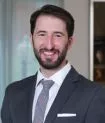- The settlement marks the first documented instance the DOJ has used health care laws to claw back PPP funds
- Many of the allegations pre-date the COVID-19 pandemic
- Health care providers can expect investigations into pre-pandemic conduct to affect their PPP funding
On April 12, 2022, Physician Partners of America (PPOA) agreed to pay $24.5 million to settle False Claims Act (FCA) allegations that it billed federal health care programs for unnecessary medical testing and that it violated the Physician Self-Referral Law, known as the Stark Law.
In an interesting development in COVID-19 funding enforcement under the FCA, the Department of Justice (DOJ) also alleged that PPOA falsely represented to the Small Business Administration (SBA) that it was not engaged in unlawful activity when it applied for a Paycheck Protection Program (PPP) loan, citing, in part, PPOA's violations of the Stark Law and other health care regulations as evidence of PPOA's false certification.
The settlement marks the first documented instance the DOJ has utilized violations of health care laws as the basis to claw back PPP funds.
Summary of Allegations
The DOJ alleged that PPOA submitted claims for medically unnecessary urine drug testing to federal health care programs because PPOA required its employees to order multiple tests simultaneously without determining whether the testing was reasonable and necessary and, in some instances, without reviewing the results of the initial tests. Moreover, the DOJ alleged that PPOA provided improper incentives to its physician employees by paying them 40 percent of the profits from the PPOA-required testing in violation the Stark Law.
The DOJ's allegations also included other questionable activity, such as requiring patients to undergo genetic and psychological testing (and billing federal health care programs for such testing) before the patients were seen by a physician and without determining whether the testing was reasonable and necessary, requiring evaluation and management appointments every 14 days via telemedicine rather than monthly in accordance with its pre-COVID-19 procedures, and requiring physicians to bill for these evaluation and management visits with inappropriately high procedural codes.
Notably, many of the health care allegations arise from four whistleblower cases filed since February 2018 (i.e., the allegations largely predate the pandemic and PPP). Regardless, the allegations allowed the DOJ to utilize this activity to assert that PPOA falsely certified to the SBA that it was not engaged in unlawful activity in order to obtain $5.9 million in PPP loans.
PPOA's settlement resolves not only its FCA allegations but also any liability under the Financial Institutions Reform, Recovery, and Enforcement Act. In addition to the settlement, PPOA entered into a five-year corporate integrity agreement with the U.S. Department of Health and Human Services Office of Inspector General.
Relationship to PPP Application
While the settlement may appear somewhat shocking, the regulations the DOJ and SBA relied upon to recoup the PPP funds have been in existence since 1996. Specifically, under these regulations, businesses that are "engaged in any illegal activity" are ineligible for SBA business loans. In implementing the PPP, the SBA similarly asserted that businesses that "are engaged in any activity that is illegal under Federal, state, or local law" are ineligible for PPP loans. Since the outset of the program, PPP loan applications have required applicants to certify compliance with this eligibility condition. Notably, other pandemic relief programs, such as the Provider Relief Fund and Medicare Accelerated and Advance Payments Program, have not had such stringent requirements; though for the Provider Relief Fund, the provider must be in good standing with Medicare.
Analysis
The settlement is notable for several reasons:
- It may indicate the federal government's aggressive approach to enforcement of pandemic-related funding programs.
- Along those lines, however, this case likely constitutes low-hanging fruit for the DOJ because the SBA's requirement to not be engaged in illegal activity and PPOA's legal woes predated the COVID-19 pandemic.
- That said, health care providers should anticipate that any investigation into their conduct, particularly their conduct predating and during the COVID-19 pandemic, potentially implicates their ability to retain their PPP loan funding.
The content of this article is intended to provide a general guide to the subject matter. Specialist advice should be sought about your specific circumstances.

